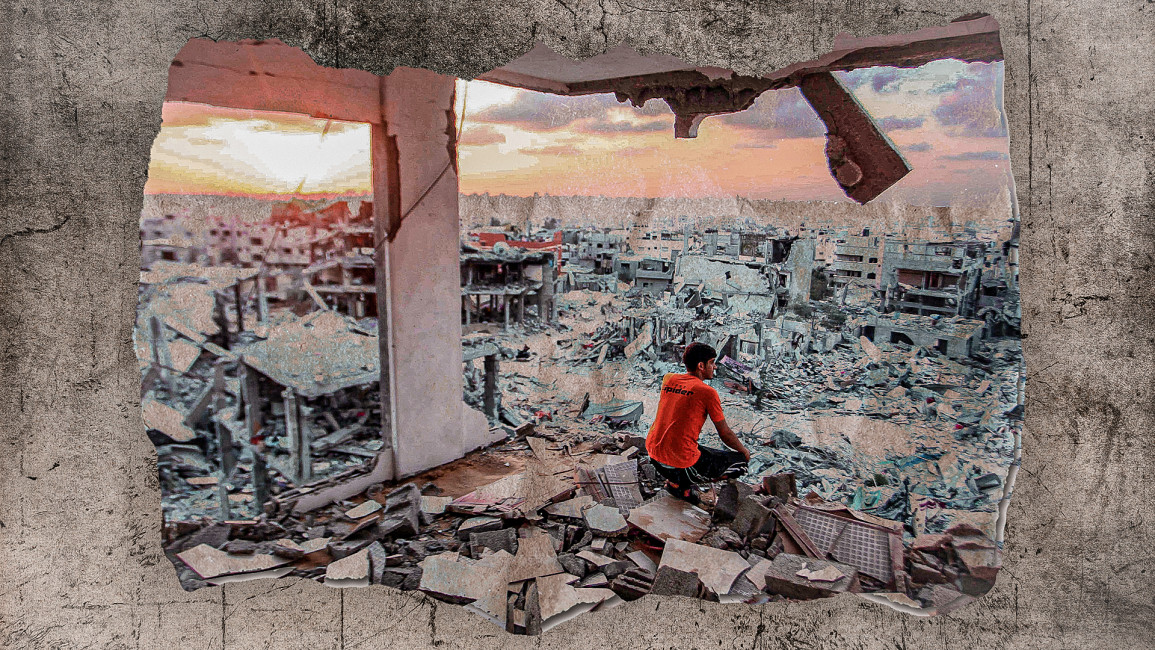Hamas and Islamic Jihad hold first joint meeting after 3-day Israeli attack
Hamas and the Palestinian Islamic Jihad (PIJ) held a joint meeting on Monday evening in the besieged coastal enclave, the first of its kind after the 3-day bloody Israeli attack earlier this month.
The meeting between the two biggest armed factions in the Palestinian Territories occurred after weeks of differences between them over Israel's war as Hamas did not participate in hostilities between Tel Aviv and Islamic Jihad.
In a press statement sent to The New Arab, the armed movements vowed to support each other in resisting the Israeli occupation, mainly if the Israeli army launched any new military operations in Gaza.
"The armed resistance is our choice to defend our people and the members of the armed resistance against all the Israeli assaults," the statement said.
Khadir Habiba, a senior PIJ leader, acknowledged that the meeting was positive and important, adding that the Islamist groups agreed to strengthen ties to support "the two groups' strategy of resisting the Israeli occupation."
"There is no retreat, no hesitation, and it will continue under high coordination between the two movements and all other factions," Habiba said to The New Arab.
The Palestinian resistance enjoys the full right to punish Israel over its violations against the Palestinians, stressed the senior PIJ leader, adding that "our response will be firm, decisive, and united."
On 5 August, Israel launched a military assault on Islamic Jihad, assassinating its commander Tayseer al-Jaabari and three of his assistants.
The targeted assassination came days after a PIJ leader was arrested by Israeli forces in the occupied West Bank. The Israeli army then carried out dozens of airstrikes against residential buildings, military sites, and civilian properties under the pretext that they belonged to Islamic Jihad, the second most powerful armed Palestinian organization in Gaza.
In turn, the PIJ launched dozens of homemade rockets into Israeli cities and towns, including Tel Aviv, Ashkelon, Ashdod, and towns adjacent to the Hamas-run coastal enclave.
Two days later, Israel and Islamic Jihad agreed to a precarious Egyptian-brokered truce to end three days of intense bombing on Gaza that killed at least 49 Palestinians, including 17 children. At least 360 others were wounded in the conflict.
Contrary to many expectations, Hamas kept a distance from the recent Israeli military assault largely due to already dire living conditions in Gaza, but also because of concessions it received following the ceasefire that ended Israel's military operation in 2021.
Even though Israel unilaterally initiated the military escalation, the PIJ found itself alone in the battle, receiving no help from its ally Hamas.
"It was very important for the movements to hold such a meeting to put an end to the Israeli propaganda that it succeeded in dividing them," Talal Okal, a Gaza-based political analyst, told The New Arab. "Both of them (Hamas and Islamic Jihad) have their reasons during the latest Israeli assault (...) we can say both of them were right and wrong at the same time."
"However," he added, "we cannot deny that Hamas' non-participation in the military battle was the result of a fundamental disagreement with Islamic Jihad regarding the situation in the Gaza Strip."
He further explained that Islamic Jihad has its reasons that are directly related to Iran and its policies toward Israel and its other enemies.



